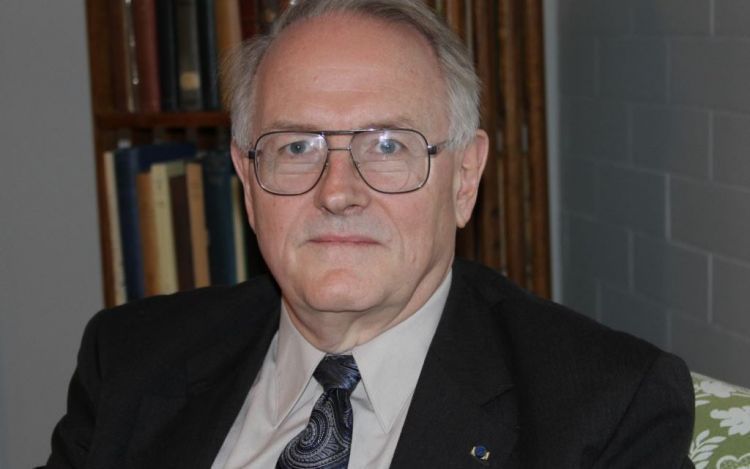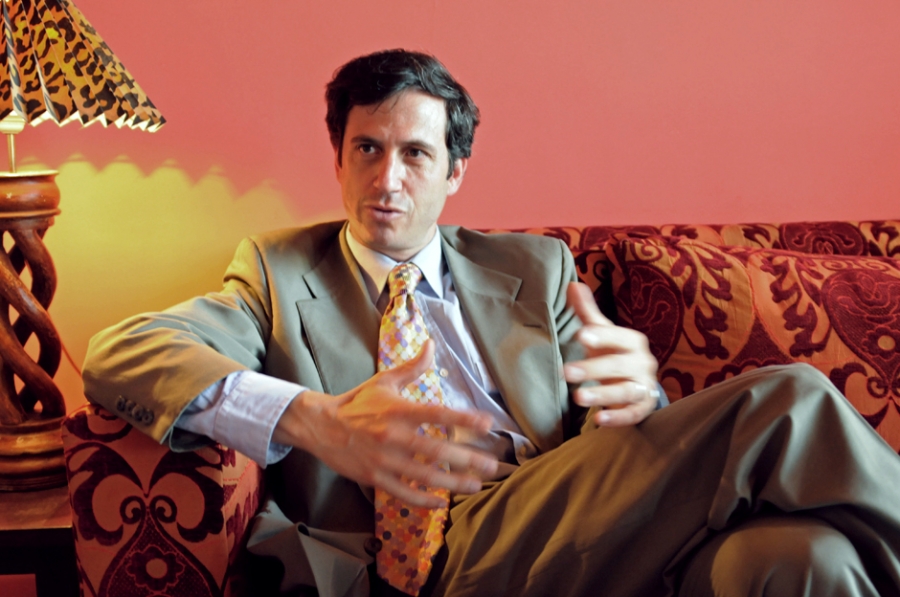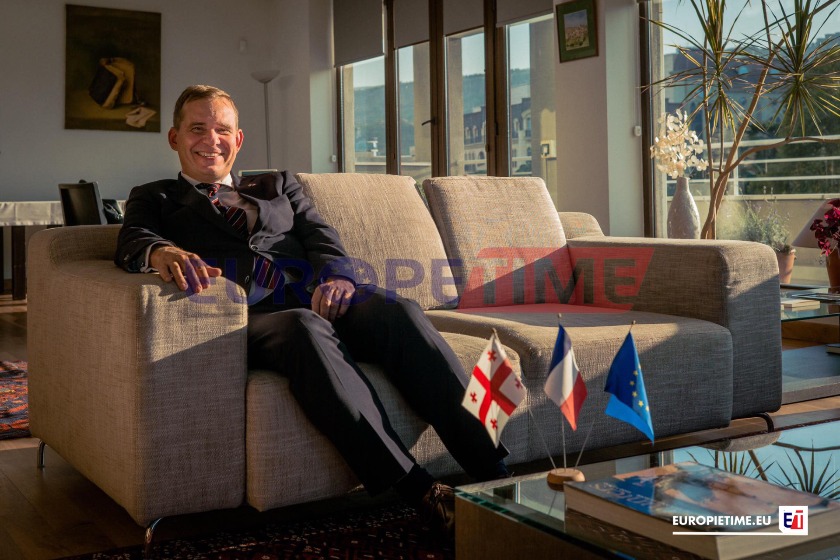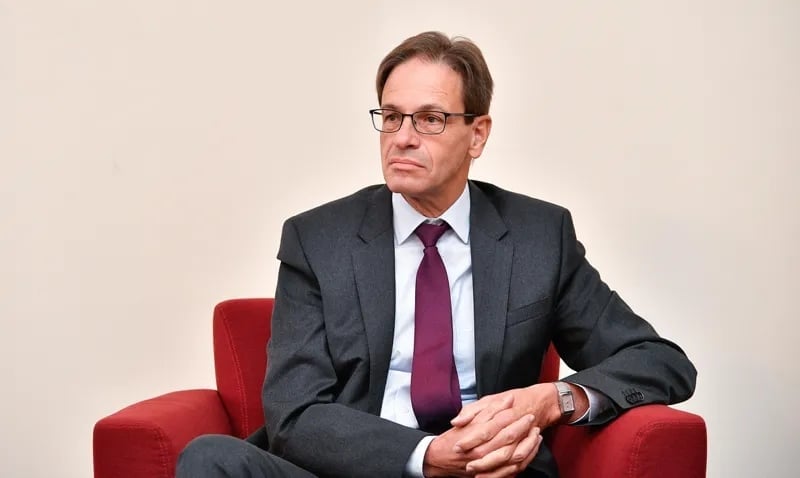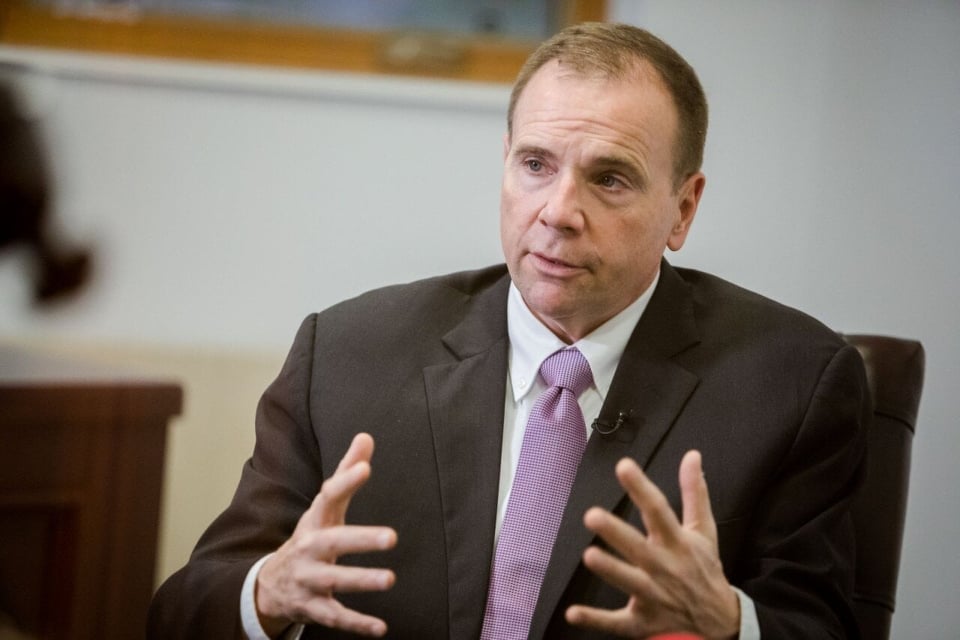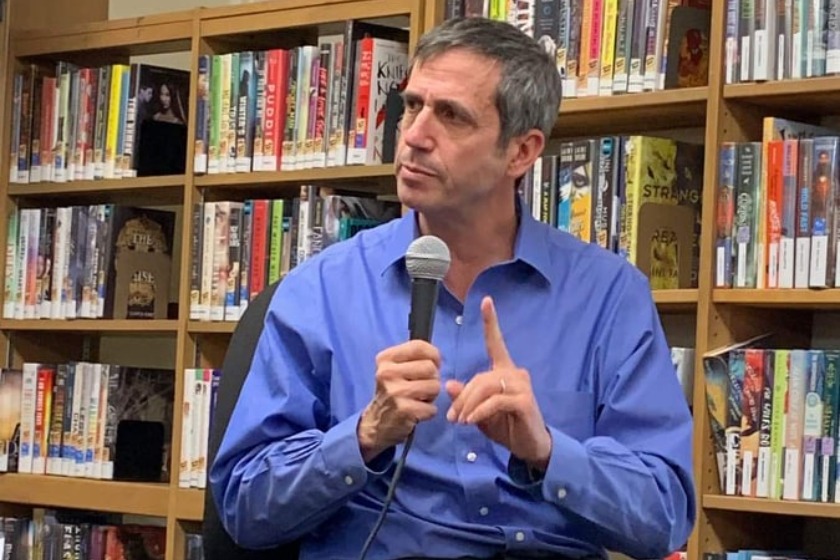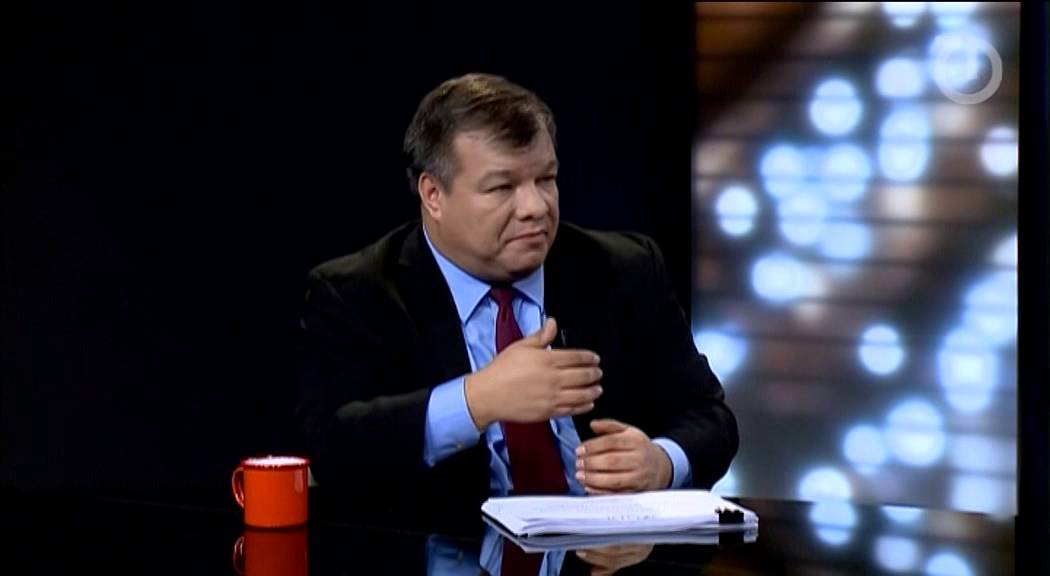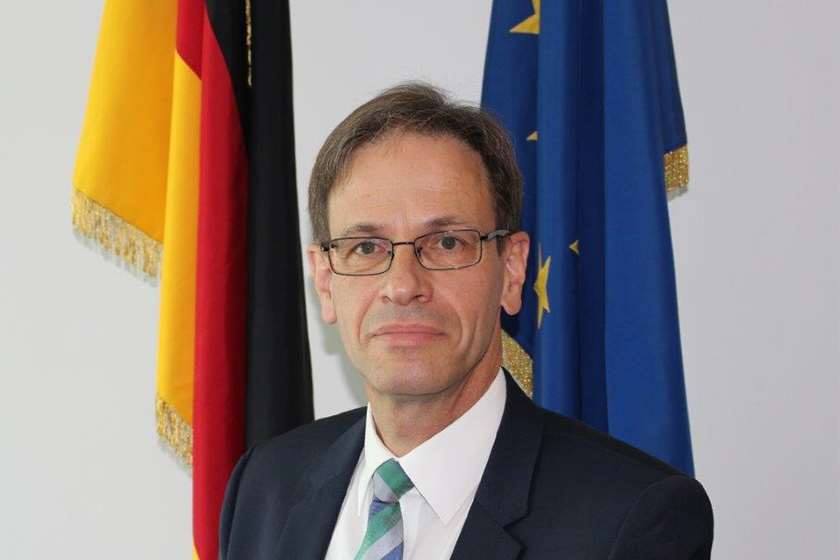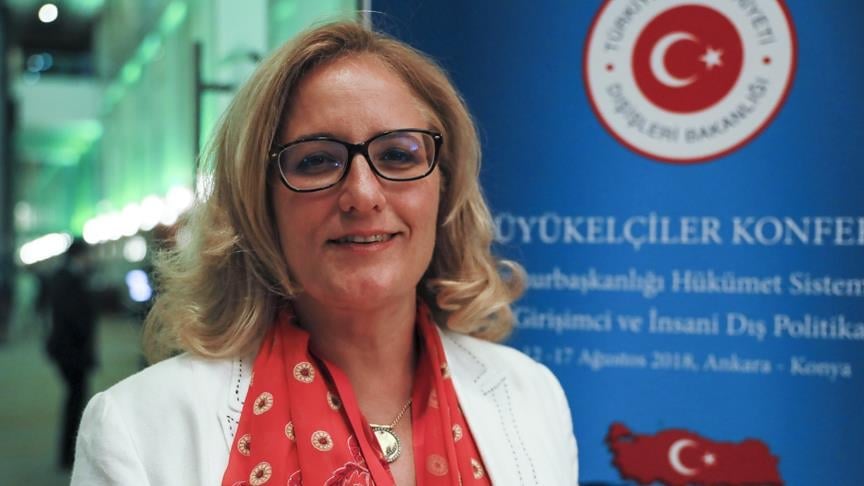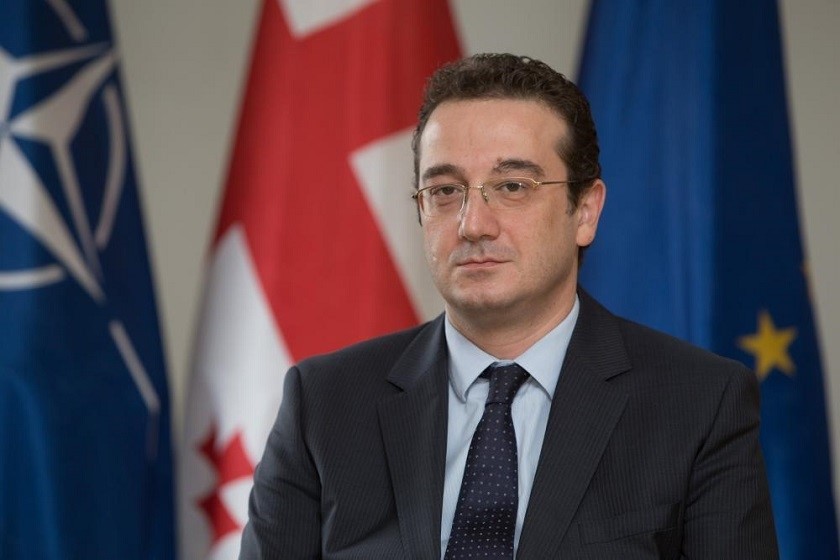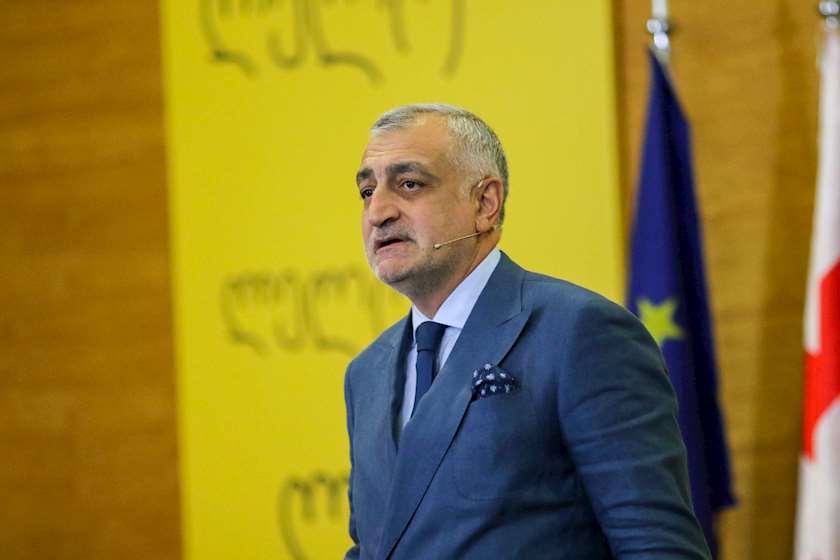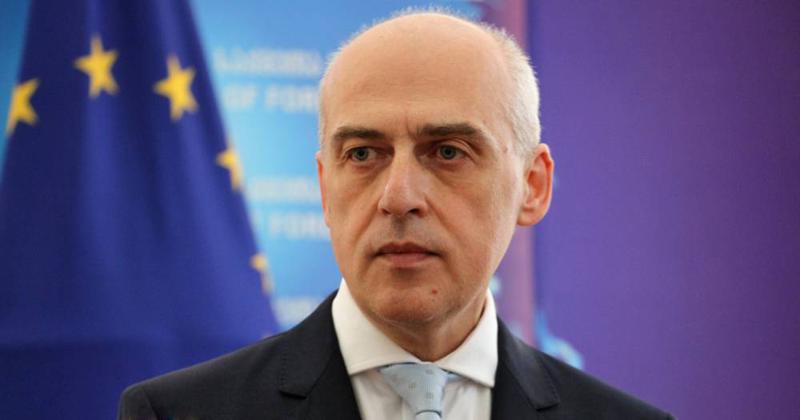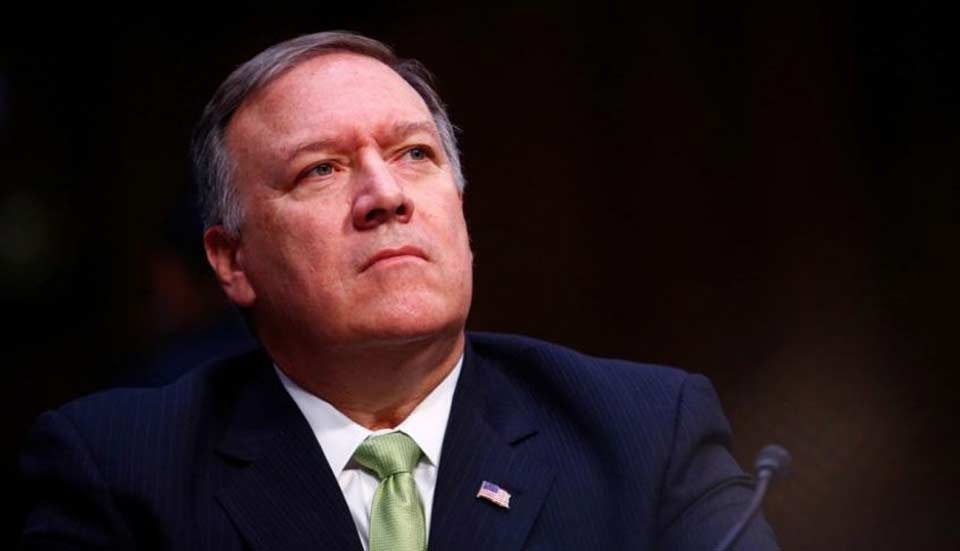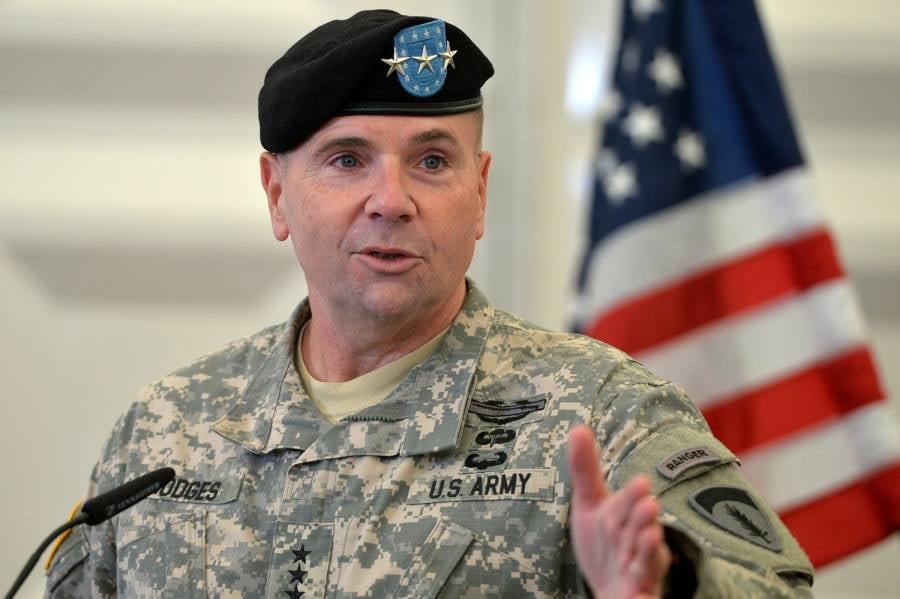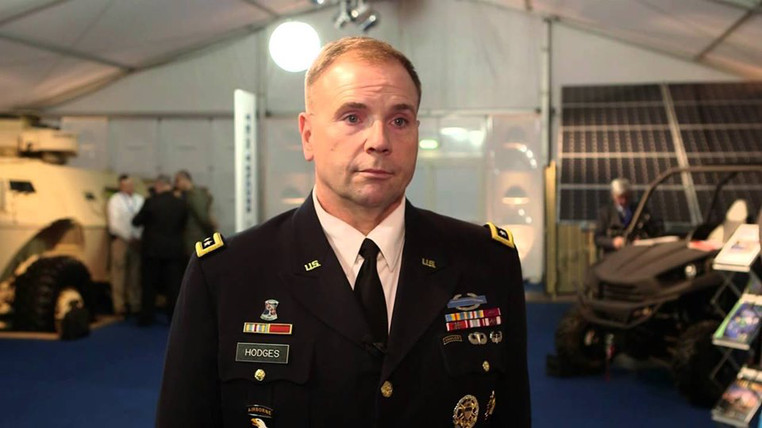Politics
Paul Goble: The Biden administration is a big improvement on its predecessor for the US and for Georgia
"The Biden administration is a big improvement on its predecessor for the US and for Georgia",- former adviser to the Secretary of State told EuropeTime.A former Baker administration official assessed the messages sent to Russia by US President, Joe Biden and Secretary of State Anthony Blinken. Paul Goble thinks Biden will be tougher on Russia. "The Biden administration is a big improvement on its predecessor for the US and for Georgia. I believe it will speak out forcefully and act jointly with allies to hold Moscow accountable. That is something everyone except Putin benefits from, and Georgia should work hard to justify even more Western support",- said Paul Goble.
Lincoln Mitchell: President Biden and Secretary Blinken’s comments regarding Georgia are best understood as an indication that the US will return to its previous polices regarding Georgia
"President Biden and Secretary Blinken’s comments regarding Georgia are best understood as an indication that the US will return to its previous polices regarding Georgia",- American analyst Lincol Mitchell mentioned in an interview with EuropeTime. “President Biden and Secretary Blinken’s comments regarding Georgia are best understood as an indication that the US will return to its previous polices regarding Georgia. That includes rhetorical defenses of its territorial integrity. While this is a break with the Trump administration as the former president was always afraid of confronting, or even disagreeing with, Vladimir Putin, I do not anticipate US-Georgia relations being much different than they were during the Obama years”,- said Mitchell to EuropeTime.
French Ambassador: If you ask me about the necessity of a strong Western presence in South Caucasus, I emphatically reply yes
Relations between France and Georgia, ‘Amilakhvari Dialogue’, the Georgian-French military cooperation, ongoing processes in the region, including the Nagorno-Karabakh conflict, Georgia’s EU prospects, Russian factor and ‘Georgia vs Russia’ case, a landmark judgement of the Strasbourg Court in favor of Georgia were the topics of the Europetime interview with the Ambassador Extraordinary and Plenipotentiary of the French Republic to Georgia Diego Colas. _Mr. Ambassador, thank you for the interview. First of all, how would you assess the relations between France and Georgia? Could you also briefly tell us what the format of the Dimitri Amilakhvari dialogue is intended for and what specific steps have been taken within this format in the relations between the two countries? I believe that the relations between our two countries are as close as they have ever been. As we are about to celebrate the 100th anniversary of the day when the French government welcomed the government of the first Republic of Georgia and offered it refuge after the Soviet invasion, this is only fitting. As you point out, our bilateral strategic dialogue bears the heroic name of Dimitri Amilakhvari, a famous Georgian prince but also one of the greatest heroes of the French Foreign Legion. This special format of dialogue has been created by Presidents Macron and Zurabichvili in February 2019 and was formally opened by Ministers Le Drian and Zalkaliani in Paris in December 2019. It covers political dialogue, defence and security, migration and internal security, economy and investment, as well as education and culture. Much of what we planned to do at that last meeting has been implemented. We now need to plan a new meeting to decide on future projects as well as on the further development of the existing co-operations. _What does the existing Georgian-French military cooperation include and how does France help Georgia to enhance its defense capability? We think that it is very important that French and Georgian soldiers train together, operate together and are in capacity to fight together. This strengthens Georgian capacities as well as the security of both countries, as we are thereby better able to stand shoulder to shoulder to face any threat that the future may bring. For this reason, we are proud to welcome Georgian soldiers in our best military schools and to organise French language classes for armed forces personnel in Georgia. Also, our soldiers are operating together in the Central African Republic, the Georgian armed forces being deployed to ensure the protection of European military instructors. This is a unique opportunity to deploy troops together and to gain valuable experience of difficult conditions as well as of inter-operability. There are many other areas of close co-operation. An example is mountain infantry training. Since 2006 and the creation of the Sachkere Mountain Training School, we have been special partners. Last September, in a joint exercise, French and Georgian instructors trained French and Georgian troops jointly, including by going to the very top of Mount Kazbeg, taking me along too! This was a great success and we are looking forward to future joint activities. Another example is air defence, where we are in charge of NATO’s cooperation. It is to cover the air defence segment that we proudly take part in NATO’s exercises in Georgia. The recent conflict in South Caucasus has highlighted the importance of a solid and sovereign air defence. _How would you assess the current developments in the region, the Nagorno-Karabakh peace agreement and the role of Turkey and Russia in these processes? Generally, I do not believe that it is in the interest of Georgia that the South Caucasus region become an area of strategic competition. It risks derailing the important efforts undertaken by all Georgians to become more European. And therefore, the conflict in Nagorno-Karabakh, in addition to being a horrible war, is also a matter of worry for those who care about the fate of Georgia. It would be much better for the principles of reform and co-operation to be allowed to guide Georgia’s relations with the outside world. This is what Georgia’s friends want for Georgia and also what we understand to be Georgia’s wishes. Such principles are key to the success of Georgia’s orientation towards Europe. I have great respect and admiration for the determined, strongly held, tenacious strategy followed by successive governments of Georgia with a view to bringing this country closer to Europe and the West, ever closer to liberal democracy resting on solid law-abiding institutions. I believe that this is the logical development of a deep cultural and historical proximity. To succeed, this strategy needs to concentrate on reforms and cooperation, and outside strategic competition can only be an unhelpful distraction in this regard. Such a strategy will be successful if it translates into a fundamental transformation of the country, its laws but also the practical implementation of these laws, its business culture, more generally its approach to an inclusive society. France, the EU, other member states of the EU, the US also, we are all keen to do our part to help this strategy be successful. _Given the developments in the Caucasus region, do you think it would be desirable for the West to be more present and more active in the region and have a clear position, particularly with regard to Russia? I emphatically reply yes to the necessity of a strong Western presence in South Caucasus. And I add that this is for South Caucasus, and not for or against anybody else. I believe that a country has the right to decide what path of development it wants to take, and that no one should prevent Georgia and us from building a very intense partnership if we both want to. We should also acknowledge that the degree of engagement of the European Union, the EU member states, and the US in Georgia is already quite unique in the world. This translates in very strong political support, in the deployment of the EU monitoring mission, in considerable financial and technical assistance, in visa-free travel to the EU as well as a comprehensive free trade agreement and in a great number of co-operations. Many countries also deploy naval forces at regular intervals in the Black sea to strengthen the security of the region. This includes France as we frequently take part in this effort. So, no one can doubt the strength of our commitment to the region. Regarding Russia, I want to add that, in general, I believe that EU member states are stronger in foreign policy when they manage to agree on clear messages. This is, in my view, largely the case when it comes to relations with Russia. We all regularly make clear our support for democracy in the region and in particular for respect for the rule of law in Russia itself. We have repeatedly underlined our strong support for Georgia’s territorial integrity and sovereignty in its internationally recognized borders, for Ukraine’s territorial integrity, for progress towards democracy in Belarus. We have expressed our expectations in no uncertain terms regarding the situation of Mr Navalny. The question is also, once we have a position, to decide what precise objectives we set for ourselves and how we set about to meet them. In my view, it is not a policy to simply refuse any sort of contact as a way to make our displeasure known, and then to deplore that nothing changes. _Does France, as the leader of the European Union, support the issue of EU enlargement? As you know, Georgia is going to apply for EU membership by 2024, will the economic crisis caused by the pandemic or any other factor affect the decision? The EU does not have a single leader, it is one of its many beauties. But indeed, we in France are keen to be a voice helping shape its decisions and its path towards the future. Regarding the possibility of future enlargements beyond the Western Balkans, this is a discussion that remains to be had within the EU. However, whatever the outcome of such a discussion, a country can always aim to transform itself, its State and society into a truly European polity and count of our help to achieve this. The ultimate price is not to be member of this or that Union, it is to be really, at heart, a European nation. Helping Georgia achieve this objective, which we know is dearly held by a great majority of the country, is the essence of everything we do in Georgia. _On 21 January, the European Court of Human Rights Grand Chamber issued a landmark judgement in the inter-State case concerning the armed conflict between Georgia and the Russian Federation in August 2008 and its consequences. The ruling clearly concludes that after 12 August 2008 the Russian Federation, exercising effective control over South Ossetia and Abkhazia, violated several provisions of the European Convention of Human Rights. How would you assess this decision? I believe that this judgment is a great success for Georgia and, as a former French agent to European courts, I congratulate the legal teams that helped the Court investigate this question in full as I measure the extent of the work done to reach this result. I have read the entire judgment and I think that it is even better for Georgia than the first impressions I had when reading the press summary and the operative part. The main Georgian submissions were nearly always accepted. There remains the issue of equitable satisfaction to be decided, for which the Court has set a delay. It is important for facts to be established and for the extent of violations of the ECHR to be determined by the Court that is competent to do so. The implementation of the judgment also offers an opportunity to start addressing the many issues that are still outstanding. I hope that this process will help the Geneva International Discussions find a new dynamism towards full implementation of the 2008 cease fire agreement by all parties concerned, including Russia. Only then could we be in a position to conclude that this conflict is at last finding a path to resolution and that this important obstacle to better relations with Russia is lifted.
What is the purpose of the Iranian Foreign Minister's visit to Georgia?
As part of a regional tour, Iranian Foreign Minister Javad Zarif is visiting Tbilisi. Prior to that, he paid a visit to Azerbaijan, Moscow and Armenia. At a meeting in Moscow, the foreign ministers discussed issues of bilateral Russian-Iranian cooperation, as well as issues on the international agenda, including the situation in the Persian Gulf, the resumption of negotiations on the JCPOA nuclear deal and the situation around Nagorno-Karabakh. Relations between Moscow and Tehran will not depend on the ‘whims of the United States, which is trying to harm the partnership between the two countries by imposing illegal sanctions. Our relations are developing based on the interests of the two countries and two peoples, and we build our plans without looking back to any third party," Lavrov said during a joint conference with his Iranian counterpart, Mohammad Javad Zarif. It should be noted as well that during his visit to Moscow, the Iranian Foreign Minister expressed his desire to start negotiations with the new US President on the renewal of the nuclear agreement. Javad Zarif urged the United States to lift sanctions against Iran and resume talks. Lavrov said at the meeting that the rescue of the nuclear deal is one of the most pressing issues, and Russia and Iran are interested in its full implementation. According to Iran’s top diplomat, the Nagorno-Karabakh conflict is Tehran and Moscow's concern. We thank Russia for a Russian-brokered ceasefire deal, which ‘led to a ceasefire and a cessation of hostilities in Nagorno Karabakh, and hope that this agreement will lead to the establishment of lasting peace and friendship in the Caucasus region’, Zarif said During a visit to Baku on January 25, the Iranian Foreign Minister told Azerbaijani media that under his regional tour he was going to discuss the initiative to create a 3 + 3 format platform for six countries for regional peace and development cooperation. The six-nation initiative includes Iran, Russia, Turkey, Azerbaijan, Georgia and Armenia. „I held extensive and very fruitful conversations in Baku on bilateral ties and regional cooperation’. The key to sustainable peace’ lies in ‘inclusive regional arrangement, which include ‘transit corridors benefiting all’, Zarif wrote on Twitter. The initiative to create a ‘Six Platform’ in the Caucasus Region was put forward by the President of Turkey in December 2020 after a meeting with the President of Azerbaijan. „We talked with Azerbaijan about the possibility of creating a platform with the participation of six countries - Azerbaijan, Turkey, Russia, Iran, Georgia and Armenia. This will be a good cooperation for the development of the region“, - Turkish President Recep Tayyip Erdogan told a news conference in Baku. Before arriving in Georgia on January 27, after a visit to Yerevan, the Iranian diplomat tweeted that they had ‘agreed on further strengthening bilateral ties and regional cooperation’ with Armenia ‘turning old rivalries into newer synergies’. However, Zarif did not specify whether he meant ‘a six-country platform“. What does a six-country regional cooperation platform mean, and whether it is in the interests of Georgia to create any kind of alliance with Iran, Russia and Turkey? Europetime spoke to Zurab Batiashvili, Research Fellow at Georgian Foundation for Strategy and International Studies about this issue. According to the analyst, after a new war in Karabakh, Iran would like to take part in a new security structure, which, in their view, can be formed around the Caucasus. However, there are several problems here. As for the 3 + 3 alliance plan, the first problem is that these countries, in many cases, do not have diplomatic relations with each other. For example, Georgia does not have diplomatic relations with Russia due to the occupation of our territories. Armenia also does not have diplomatic relations with Turkey and Azerbaijan. In this respect, Iran is the only country that maintains diplomatic relations with every country in the region. This is due to the fact that, unlike Russia, Iran is relatively less involved in the Caucasus. That’s why Iran is now trying to take advantage of the situation and talks about economic relations. However, there are serious problems in terms of the economic union as well, as the US has imposed very tough sanctions against Iran’, Zurab Batiashvili told Europetime. According to the analyst, it is hard to imagine Iran economically cooperating with the three Caucasian states, when sanctions do not even allow it to transfer funds, in fact, the sanctions do not allow to develop trade relations with Iran. According to Zurab Batiashvili, this is a problematic issue that can really be resolved only if Iran-United States relations are settled. „Therefore, I think that the creation of a 3 + 3 union of these 6 countries is more at the level of Iran's desire, and it won’t actually be able to do anything. As for the visit of the Iranian Foreign Minister to Georgia, I do not think that the very fact of the visit will displease the American side. Such visits are not sanctioned. Meetings and negotiations with all the neighbors are necessary, because they are in your region, and besides, there are many issues related to transit that need to be discussed’, - Zurab Batiashvili said. In December 2020, Georgian President Salome Zurabishvili mentioned the Caucasus Platform while speaking about the Karabakh conflict and regional security at the opening ceremony of the annual meeting of the heads of Georgian diplomatic missions abroad – ‘Ambassadors’ Conference 2020’. „The prosperity and development of the whole region depend on peace and stability. At the same time, we know that everyone was involved in achieving this goal in resolving Nagorno-Karabakh conflict, all the facilitators, except for us. It is very sad. The historical role of Georgia in the Caucasus has always been and still is an opportunity to bring everyone together. That is why I am deeply convinced that Georgia can be neither passive nor secondary to the initiative of the Caucasus Platform,’ - Salome Zourabichvili said on December 21, 2020. The President of Turkey announced the ‘Caucasian Platform’ initiative on December 10, 2020. The statement of the President of Georgia was followed by a critical assessment by former US Ambassador to Georgia Ian Kelly. „How can a Georgian President congratulate an agreement that locks in another Russian occupation in the Caucasus and locks out the West?’ - Ian Kelly posed on his Twitter account. When asked by Europetime, whether Iran's proposal to create a union of six countries is in the interests of Georgia and its Western partners, Zurab Batiashvili, Fellow Researcher at the Georgian Foundation for Strategic and International Studies answered that it is in the interests of neither Western partners, nor of Georgia. „Any format of the union, where our western partners are not represented, is not favorable for Georgia first of all. Because we have so many times witnessed what it means to stay face-to-face with Russia. In my opinion, this alliance is not in Russia's interests either, because Russia does not want to share its privileged status, that every state in the Caucasus is trying to achieve. Consequently, it is not in Russia's interests to increase the influence of Iran and Turkey in the Caucasus region. As for the other states, cooperation with Iran will be problematic for them as well. Sanctions do not allow any deeper cooperation with Iran. ‘Therefore, the creation of any union in the Caucasus region with the involvement of Iran is problematic and less feasible“, - Zurab Batiashvili said. Ben Hodges, Former Commanding General of US Army Europe, Pershing Chair in Strategic Studies, at Center for European Policy Analysis spoke to Europetime about Mohamed Javad Zarif's visit a few days ago. I am convinced of one thing – ‘the United States needs a strategy for how it looks at the entire greater Black Sea region, which demonstrates US commitment to stability there, including in the South…Personally, I do not see any good news coming from increased attention and presence by the Kremlin and Iran in the area.’ The Iranian diplomat will leave Georgia on January 28.
Ambassador Hubert Knirsch: The verdict of the European Court confirms that Russia is responsible before the law for human rights abuses in the torn-away regions that occurred after the 2008 war
In an interview with Europetime, Germany's ambassador to Georgia- Hubert Knirsch commented on the European Court of Human Rights verdict. "The verdict of the European Court of Human Rights confirms that Russia is responsible before the law for human rights abuses in the torn-away regions that occurred after the 2008 war. Our political ambition must be not only to effectively include these regions in the international mechanisms for the protection of human rights but also to transform and ultimately to solve the conflicts that have cast their shadows over them for such a long time already. All participants should make full use of the Geneva International Discussions to move forward on this road",- Hubert Knirsch said.
Ben Hodges: The US needs a strategy for how it looks at the entire Black Sea Region and which demonstrates US commitment to stability there
Former commander of the United States Army Europe, Lieutenant General and the Pershing Chair in Strategic Studies at the Center for European Policy Analysis (CEPA), Ben Hodges sees the 5G-Security Memorandum of Understanding between the US and Georgia as an important step in strengthening coordination and building trust. What will this bring to Georgia and will it guarantee investments and closer ties with NATO? In addition to this issue, in an interview with „Europetime“ Ben Hodges also assessed the messages of Anthony Blinken, that "Russia is particularly aggressive towards countries that are not united under a single security umbrella. Can we think that the new US administration will facilitate and accelerate Georgia’s accession into NATO? Will Georgia be able to respond with dignity to the big challenges and stakes that its partner countries may be placing on it? ‘Europetime’ also spoke to Ben Hodges about the Iranian Foreign Minister's planned visit to Georgia and other issues. _General Hodges, a Memorandum of Understanding was signed between the United States and Georgia on the development of fifth-generation wireless communication networks - 5G security. It was said that this will make Georgia “part of a clean network”. What will this bring to Georgia and will it guarantee investments and closer ties with NATO? Having a secure network in which we are confident is important to planning and coordination, and building trust. _The US Deputy Secretary of State stated that the United States plans to open DFC - "Development Finance Corporation" in Georgia. An initiative was also expressed to draw up a business plan for the United States and Georgia. Does this also mean the launch of a US-Georgia free trade agreement, and can this be seen as a message that the US is entering a new phase in its relationship with its strategic partners under the new administration? DFC is e recent improvement in how the US Government brings us investment sources to nations where we believe investment helps improve stability and security as well as prosperity. This would be a very good step by the USA for Georgia. _The new US Secretary of State Antony Blinken said at the Senate hearings what you have repeatedly stated in an interview with us that ‘Russia is particularly aggressive towards non-NATO countries that is to those that are not united under a single security umbrella. This can be seen from why Russia does not attack NATO members’; so, can we regard this statement as a signal the new US administration will facilitate and accelerate the process of Georgia's integration into NATO? That is certainly my hope. It is a good sign that President Biden’s nominee to be our next Secretary of State has spoken so clearly about this. And I hope that the Biden Administration will push hard for Georgia’s accession into NATO. But we’ll need to get strong support from Germany, France and the UK as well. Good that Turkey is already a strong advocate. _The vision and plan of the new US administration for the Middle East - Iran, Syria and Afghanistan are important. Will the United States support the reduction or complete withdrawal of NATO peacekeeping missions from Afghanistan? I don’t know, but I do believe three things: #1 we should not pull out in such a way that the Afghan Government is left too exposed. #2 the US should withdraw in a measured and careful way that has been closely coordinated with all of our allies and partners in Afghanistan – in together, out together. And #3 we should not stay in Afghanistan if we are not serious about dealing with Pakistan and its tolerance of a safe haven for the Taliban there within sovereign Pakistan territory. _It has recently been reported that the Iranian Foreign Minister will pay a visit to Georgia as part of his regional tour. Before that, he will hold meetings in Moscow. What do you think might be the reason or issue of a sudden visit of a high-ranking Iranian official to Georgia? I don’t know, but the US needs a strategy for how it looks at the entire greater Black Sea region and which demonstrates US commitment to stability there, including in the South Caucasus. I don’t see any good news coming from increased attention or presence by the Kremlin or Iran in the area. _Readiness for NATO membership means, first of all, a high degree of democracy and the rule of law. Taking into account all the above, if the pro-Western forces in Georgia are not consolidated and young qualified people are not raised, will the country be able to adequately respond to the big challenges and stakes that its partner countries may be placing on it? This is for the people and government of Georgia to decide. I’m concerned that the government seems to be ‘backsliding’ a bit in its commitment to democracy, transparency, and desire to join NATO. I can see the influence of the Kremlin here. But nothing good for the young people of Georgia will happen if the Government of Georgia chooses a path away from further western integration.
Lincoln Mitchell: I am not entirely convinced that Ivanishvili will fully remove himself from politics in Georgia
American analyst Lincoln Mitchell, who advised Georgian Dream in the 2012 elections, assesses Bidzina Ivanishvili's departure from politics along with Europetime. “Like many I am not entirely convinced that Ivanishvili will fully remove himself from politics in Georgia. The question, for me is whether Bidzina will be comfortable not saying or doing anything the first time he sees somebody in government make a decision he views as a mistake or if he sees the party stumbling politically. Additionally, many in the GD party and government are so accustomed to Ivanishvili being the most powerful force in Georgia that they may not believe that he is truly leaving politics, leading them to remain in contact with him, run ideas by him and the like. The macro-question for Georgia remains whether or not the country can break out of a now several decades long cycle of the consolidation and collapse of one party systems. The only way to break that cycle is to move to genuinely competitive politics. Ivanishvili’s decision is a step in that direction, but it is only a step. Additionally, anything that moves Georgia out of a politics dominated by a fight between Ivanishvili and Saakashvili is positive and Ivanishvili’s recent decision may help do that”, - said Mitchell to Europetime. Bidzina Ivanishvili announced his retirement from politics on January 11.
Luis Navarro commented on Bidzina Ivanishvili's statement of quitting politics
„Given Ivanishvili’s informal governance, it is difficult to assess what his declaration means. His prior resignation from the role of PM and party Chair in 2013, only meant his public withdrawal. His new “dream” of a non UNM opposition to the current govt suggests he is still very interested in politics“, - Luis Navarro, about Bidzina Ivanishvili quitting politics. „His resignation from the post of Prime Minister and party chairman in 2013 meant only leaving the post in public. His new "dream", of "National Movement" not to be an opposition force against the government, indicates that he is still very interested in politics. So we will see in the future how he handles the events“, - said Luis Navarro. So I think we will have to see how he defines this declaration in due time - stated Navarro in an interview with Europetime. Bidzina Ivanishvili, the head of Georgia’s ruling party said on Monday he was quitting politics.
Hubert Knirsch: Germany has a leading role in the active cooperation in the framework of the Substantial NATO-Georgia Package
„Georgia has the potential to build a stable democracy and a market economy that works for all of its society. This is why there is no other country that sees an equal measure of Western presence and Western assistance“, - German Ambassador to Georgia said in an interview with ‘Europetime’. Hubert Knirsch spoke to ‘Europetime’ about relations between Germany and Georgia, the prospects of Georgia's accession to the European Union, and Germany's alliance on the path to Euro-Atlantic integration for Georgia. _Mr. Ambassador, thank you for the interview. First of all, how do you assess the Georgian-German relations? We are also interested in your assessment of the existing Association Agreement between Georgia and the EU, which includes the possibility of establishing free trade relations. To what extent has the country been able to adopt and use this resource? Georgia and Germany have many things that bind them together - as one example, I want to mention the tradition of Georgian students and scholars going to Germany, which continues very strongly in the present era and which is increasingly being reciprocated by Germans coming to Georgia. Our economic relations are already very good, and we focus on how to use their broad potential. The Association Agreement gives us a good framework for that, but it is for German and Georgian entrepreneurs and managers to identify opportunities and to set up concrete business projects. I see that Georgia is making progress in diversifying its exports. German cooperation helps to improve vocational education in Georgia, which I believe is necessary to boost economic opportunities in the country. _By 2024, Georgia plans to apply for EU membership. Do you think that the problems caused by the pandemic and the economic crisis could hinder the issue of EU enlargement? It is always good to have one´s eyes on the future, even in an acute crisis situation. To me, the immediate future will be filled with the work of bringing Georgia closer to the EU, in a practical and concrete way. This means approximating legislation, setting up administrative capacity that can apply rules and standards which are close to the European ones and also, not to forget, to increase trade, improve economic activity, raise the standard of living and social cohesion. All these things are necessary to bring Georgia forward on the European path. _In an interview with ‘Europetime’, the former commander of the US ground forces, Lieutenant General Ben Hodjes said that Germany should be the largest US ally, and that Germany's support for Georgia on the path to Euro-Atlantic integration is also important. What can you tell us in this respect? I was happy to meet General Hodges here in Tbilisi a while ago. This is a man who speaks out strongly in favor of Euro-Atlantic partnership, a friend of both Georgia and Germany. The cooperation with Georgia that he advocates is actually very strong, and a large number of NATO countries make active contributions to it. To a great extent, this takes place in the framework of the “Substantial NATO-Georgia Package”, in which Germany has a leading role. _If we look at the current processes in the region, as well as the domestic political processes, do you think that West should be more present in the region and should have a clearer position on a number of issues, particularly regarding Russia? It is an important foreign policy goal of Western countries to see a good development in all of Eastern Europe. The countries that have already joined NATO and the EU are examples of what is possible. And Georgia has the potential to build a stable democracy and a market economy that works for all of its society. This is why there is no other country that sees an equal measure of Western presence and Western assistance.
Ben Hodges: I do hope that Georgia`s opportunity to join Nato will be Accelerated and Biden administration will increase rotational forces in Georgia
In an exclusive interview with „Europetime“, Lieutenant General Ben Hodges, the former commander of US ground forces, summed up the results of the NATO Ministerial and said he hoped Georgia's integration into NATO would be accelerated, and under the Biden administration, the US would increase its rotational forces and infrastructure in Georgia. He also noted that he couldn’t imagine a strong NATO without Turkish participation, leadership and contribution. _General Hodges, The NATO Ministerial has now ended and as it’s become known that a new version of the substantial package has been approved for Georgia. That is, support is growing. How would you evaluate this decision? It was also said that the Allies will try to find more practical ways to help. Do you think this practical way would be Georgia’s immediate integration into NATO as you have already stated previously? I do hope that Georgia`s opportunity to join Nato will be Accelerated. This is important as it is a key part of the competition in the greater black sea region. When we show we care about a region we also need to find a way to gain the initiative in the black sea region. Offering map to Georgia and Ukraine will help do that. The Kremlin does not need provocation... It does what it wants and then tries to blame others... A continuous false narrative. Actually, it is better to be strong, to take the initiative... The Kremlin only respects strenghth and despises weakness. _In an interview with „Europetime“, you have repeatedly stated that it is time for the West to become more active in relation to Georgia and the region in general. The events of Karabakh have made the need for this even more obvious. In your opinion, if the issue of granting a Map to Georgia is really on the agenda, will it be a kind of „awakening“ for the West? What Would be more of an awakening for the west, would be for Georgia to take the necessary steps to make itself much more attractive to international private investment... Getting large business investment from Germany, Netherlands, France, UK and the US will cause those nations to pay much closer attention to Georgia`s security...And of course that`s the last thing the Kremlin wants to see. _You stated that Turkey should be the main strategic partner for US in the region. Given the balance of power in the region after Karabakh Peace Deal and the fact that Turkey is a NATO member, do you think it is time for Western cooperation with Turkey to become even more intensive? Yes of course... I don`t even want to imagine NATO without strong turkish participation, leadership and contributions... We have to rebuild trust between our nations as well as between Turkey and Europe. _In your opinion, will the US-Georgia bilateral relations move to a more important stage under the Biden administration, in particular, will the US increase its rotational forces and infrastructure in Georgia? I hope so. I do believe that the Biden administration wil be firm in dealing with the Kremlin and that it will see the black region as strategically important... I`m anxious to see who will be our new secretary of defence and who will fill the second and third tier positions within dept of state and dept of defence... Those will be important signals about which direction the Biden administration will take. _In your opinion, will the issue of the Anaklia Project be raised, especially since the foreign ministers of NATO member states are discussing the issue of Black Sea security? This is such an important project...And I`m disappointed that the govt of Georgia has thus far prevented or at least is has not helped with this development... If the govt of Georgia really wanted this port then it would be under construction. I think that there is too much Kremlin influence here. _To sum up Pompeo's visit, do you think this visit contained more of a message that America is here and has not gone from the region? We have great diplomats who work in our embassy in Tbilisi... And they need the support of the secretary of state...So visits are important. But we have to do this on a consistent basis. _The new configuration and balance of power make the fate of the important transit corridor in Karabakh that connects Europe with Eurasia unclear. What role can Turkey play here as a NATO member? I hope that Turkey will Find a way to ensure that these Russian `piece keepers` in N-K are not there for long. I suppose that`s a possibility. I`d like to see Turkey open its border with Armenia as a sign of good will, to provide economic relief, and to help demonstrate its role in protecting Armenian citizens. Armenia Should Seriously reconsider its reliance on the kremlin for its security... It was clear from the beginning that the Kremlin was going to allow Armenian forces to be crushed in N-K... and they were not prepared militarily. Yes Armenia still allows Russian troops to be based there. Armenia needs a much more reliable friend. Perhaps the USA and Turkey and Georgia can help there.
It is a shame that the US government failed to play an active role in ending the Nagorno-Karabakh conflict, Matthew Bryza says
"The agreement reached to end Nagorno-Karabakh definitely shows the sign of a lack or much lower US level of activity and interest in the South Caucasus," Matthew Bryza, a former US Deputy Assistant Secretary of State for Europe and Eurasia, said in an exclusive interview with "Europe Time". He recalls the period of working at the White House when he spent a long time preparing the background information and talking points for President George W. Bush's meeting with the leaders of Azerbaijan and Armenia, Robert Kocharian and Heydar Aliyev. Bryza says that then the issue could not have been resolved without the US, and it is a shame now that the United States has failed to play an active role. According to him, during the clashes between Azerbaijan and Armenia in July, it was clear that the United States and France were not going to play an active role in helping to bring down tensions between the two sides. As Matthew Bryza said, these countries were not fully active. As a result, Russia and Turkey took over the role. In the end, it was decided that peacekeeping forces from Russia and Turkey would be deployed on the ground-a fact that the American diplomat called very important, for he believes that Turkey, as a NATO member and NATO’s second-largest army, on Azerbaijani territory, will help to counterbalance Russia. The Nagorno-Karabakh Peace Agreement, which was signed on November 10, is based on principles proposed by the Minsk Group in 2007. He said the United States, Russia, and France helped Azerbaijan and Armenia in the negotiation process, which had been preliminarily agreed upon by their leaders, but subsequently, they had failed to finalize all the details of the basic principles. As a former spokesman for the Bush Administration stated, the version of this agreement provided for the return to Azerbaijani control of all seven Azerbaijani districts surrounding Nagorno-Karabakh that Armenia was then occupying; in exchange, Armenia would gain an "interim legal status" and eventually a final legal status that would be determined by a vote of the residents of Nagorno-Karabakh. Bryza noted this could not and would not have happened without US participation in the past.".. But it is a shame the US is not active now, in the present, in mediating the Nagorno-Karabakh conflict. " In an interview with Europe Time, Matthew Bryza mentioned Mike Pompeo's visit and said that the United States’ message is to help strengthen Georgia's democracy at the same time. He believes that the government, opposition, and NGOs should work together in this direction. During Mike Pompeo's visit, US Ambassador to Georgia, Kelly Degnan, explained to journalists why the Secretary of State did not meet with the opposition. She said that everyone, in particular the opposition, needs to do hard work after being elected to participate in parliamentary life and focus on the reforms they want to work on, especially on electoral reforms. As the Ambassador noted, the Secretary of State believes that it is important to use the mechanisms of democracy that exist and work on their improvement. The latter is the most important factor for US officials. According to Matthew Bryza, both US Ambassador Kelly Degnan and Secretary of State Mike Pompeo realize that the latter's decision not to meet with the opposition was quite unpopular with the Georgian opposition. It was like Mike Pompeo was meeting with NGO leaders. He added, however, that the stay of Deputy Assistant Secretary of State Philip Reeker in Tbilisi to meet the opposition was a particularly important step, as was Mike Pompeo's meeting with Georgian NGO leaders. To summarize, the message from the United States is to help strengthen Georgia's democracy. America believes that the government, the opposition, and NGOs should work together in this direction. I don’t know what the purpose was of Secretary Pompeo’s visit to Georgia, but I always think, under all circumstances, it is great for the US Secretary of State to visit Tbilisi to underscore that despite the political crisis and the deep polarization between the opposition and the government, the United States wants to help the Georgian people strengthen their democratic institutions. At the same time, the visit underscores the United States' enduring support for Georgia's efforts to deepen its ties to NATO, "the US diplomat said.
Ambassador of Turkey to Georgia: Georgia is a Strategic Partner to Turkey and we Fully Support Its Current Efforts to Join NATO
The hostilities between Armenia and Azerbaijan ceased upon reaching an agreement between both nations. In accordance with the agreement, Armenia was mandated to hand over territories beyond Nagorno-Karabakh to Azerbaijan. These territories which used to be under the control of Armenian forceswould be vacated for Russian peacekeepers, in a bid to secure the area which used to be a conflict zone. Furthermore, Armenia agrees to stay clear of the road construction connecting Nakhichevan to Azerbaijan.Baku also agreed to deploy Russian peacekeepers in the region, while the Russian army will control the road that will connect Armenia through Azerbaijan from Lachin region to Nagorno-Karabakh. The President of Armenia Nikol Pashinyan, agreed to create a transit corridorfor Azerbaijan in order to allow for safe connection to its enclave in Nakhichevan. This corridor will also be under Russian surveillance. Ilham Aliyev, the President of Azerbaijan was quoted to say, “Russia and Turkey will be deployed in peace center of Nagorno-Karabakh”, and this is clearly highlighted in the Agreement with the clear definition of the role of Turkey in the “Joint Peace Monitoring Center”. “EuropeTime” spoke to the Turkish Ambassador to Georgia, Fatma Ceren Yazgan about the role of Turkey as member of NATO in the Nagorno-Karabakh situation, other current situations and processes in the region, as well as,the Turkish-Georgian relations. The NK issue is a permanent source of instability in the region. Turkey, in accordance with the UNSC resolutions 822, 853, 874 and 884, has been calling on Armenia to end its occupation of internationally recognized Azerbaijani territories for nearly 30 years. The ceasefire is a promising step and can pave the way for a lasting solution. We believe that stability in the region will benefit Armenia too. These regional developments are however not a source of concern for the bilateral relations between Turkey and Georgia.“Turkey perceives Georgia as a true strategic partner. Turkey has always advocated for Georgia’s inclusion into the NATO. We will continue to support Georgia’s Euro-Atlantic integration aspirations, especially its ongoing efforts for NATO membership”, Ambassador of Turkey to Georgia, Fatma Ceren Yazgan affirmed. "At the request of Azerbaijan, we agreed to monitor the ceasefire. We have signed a Memorandum of Understanding with Russia, which will ensure the presence of Turkish troops in the joint peace center”. The Ambassador further stressed.“Turkey, as the only NATO member country in the region, has been a NATO member state since 1952 and has always supported cooperation between the Alliance and South Caucasus states including Armenia. Neither Turkey’s membership to NATO, nor our support to NATO’s partnership with our neighbors are new.” Fatma Ceren Yazgan continued in his explanation of Turkey's support for States in the Caucasus region. When pressed about our interview with General Ben Hodges, where he highlighted Turkey as the biggest ally of the West on the Euro-Atlantic path, and he suggested that it would be good if the USA would increase its infrastructure and rotational forces. The Turkish Ambassador submitted that“ It is Georgia's own business and concerns bilateral relation between Georgia and US.”
Bakradze on Hodges: The role of Georgia in the region in terms of Security and Stability is being reaffirmed
„Georgia's role in the region in the direction of security and stability is being affirmed“,David Bakradze, Georgia’s Ambassador to the United States said while answering questions posed by reporters at the Tbilisi International Airport. When asked whether the conversation at the meeting referred to the issue which was discussed by former US military Chief of Staff,General Ben Hodges with „EuropeTime“, Bakradze answered that Georgia had an action plan and the plan entails Georgia’s self-defence ability. „We signed a memorandum with the United States in 2016 on defense and security issues. In 2017, we signed a program to strengthen Georgia's defense, within the framework of which we have an action plan, which we are constantly updating and within which Georgia is approved. Georgia's role in the region in terms of security and stability is confirmed, Georgia's compatibility with the Alliance is also confirmed. These are the directions we will discuss“. David Bakradze clarified. General Hodges,had mentioned in an interview with our publication, that it would be good if the US increased infrastructure and rotational forces in Georgia.
Khazaradze on Hodges: deployment of US military bases will be an inevitable and bold move
„I fully agree with General Hodges opinion, it will be crucially important for our country, especially with the looming consequences. We have to work in this direction”,Mamuka Khazaradze said in a publication available on experti.ge In the interview, Khazaradze mentioned that the urgent deployment of US military bases will be an inevitable and bold move. „For thirty years, one of the biggest allies, friends, and strategic partners of Georgia has been the United States. America has provided the greatest financial investment and humanitarian assistance to our country these past decades. In addition to these, the development of Georgia’s democracy remained the main direction for the relations between Georgia and the US. Unfortunately, during the current government, this partnership was weakened by Tbilisi, but Washington's position remains firm to help Georgia in its Euro-Atlantic integration, as Mike Pompeo confirmed on the very first day of his visit to Tbilisi“. He also stated that the situation in the Caucasus region changed drastically because of the Nagorno-Karabakh conflict and that Russian presence in the region has grown stronger. For Khazaradze, Pompeo’s visit is a visual statement of fact that the USA is equally concerned with moves in the Caucasus region.Prior to Mike Pompeo’s visit, General Hodges, in an interview with „EuropeTime“, said that it would be great if the United States increased its infrastructure and rotational forces in Georgia.
Zalkaliani on Hodges: Cooperation on defense and security with the US is very important
„Collaboration with US is crucially important for Georgia in the field of defense and security, otherwise, we will not be able to cope with the security challenges facing our country”. Georgia’s Minister of Foreign Affairs, David Zalkaliani, asserts ahead of the arrival of the US Secretary of State, Mike Pompeo, at the Tbilisi International Airport. He was asked by reporters if the meeting was about the issues raised by the former head of the US military in Europe, General Ben Hodges, when he spoke to “EuropeTime” “Cooperation in the field of defense and security with America is very important and valuable for us.Strengthening our democratic institutions is one of the key areas of strategic partnership cooperation and we are constantly talking about it. Strengthening democratic institutions is an ongoing process”.the minister reiterated. In an interview with our publication, General Hodges said that it would bode well if the US increased its infrastructure and rotational forces in Georgia. According to him, with the help of the Americans, talks on strengthening Georgia will continue. US Secretary of State Mike Pompeo is already in Georgia and he will hold official meetings beginning on November 18.
Georgian experts to Mike Pompeo: Establish a Permanent Representation of the US Armed Forces in Georgia
US Secretary of State Mike Pompeo was addressed with open letter from experts on security and foreign policy issues, stating initiative about establishing of permanent US military mission in Georgia. As claimed by them, this will bring Georgia even closer to NATO membership. The letter is presented invariably: Dear Mr. Secretary, We, the representatives of the security and foreign policy community of Georgia, sincerely welcome your visit to Tbilisi during these heated times. We are united in our desire to share our views on advancing the U.S.-Georgia defense and security partnership. For Georgia, the United States is a vital ally. Likewise, we believe in Georgia’s share in bolstering Western interests in Europe and globally. Georgia stands as a keystone for securing our allies’ foothold in the East-West Corridor, which multiple U.S. administrations have invested so much to build. We see a U.S.-led Euro-Atlantic system as the only guarantor of a Europe that is whole, free, and at peace. In recent years, the South Caucasus and the Black Sea regions have become areas of geopolitical instability. Most of these security risks stem from Russia’s ambitions to reconstitute a Soviet-era “sphere of influence,” in what Moscow perceives as its “Near Abroad.” Emboldened by its freedom of action, Russia recently deployed troops to Nagorno-Karabakh to enhance its regional military posture. Since regaining independence, the freedom-loving citizens of Georgia have toiled to create a functional democracy. In this project, the United States has been an indispensable ally by elevating Georgia to, in the words of President Ronald Reagan, a “Shining City Upon a Hill” that has overcome state failure and successfully battled the Soviet legacy of corruption. The Georgian people do not take genuine American friendship for granted. Over 90 percent of Georgians hold a favorable view of the U.S. and Georgian soldiers have proudly served in the U.S.-led missions in Iraq and Afghanistan. We express our profound appreciation for America’s strong support to Georgia’s sovereignty and territorial integrity. We believe that a key step forward to support the Georgian people in our struggle for freedom, while advancing U.S. regional and global interests, would be: A permanent presence of American armed forces in Georgia. Such a policy may include allied (U.S./European) forces on a rotational basis, as well as logistical and air patrolling elements that would provide a wide range of options for American and allied forces to operate uninterrupted in the South Caucasus and Black Sea regions. At the same time, the U.S. military presence in Georgia would enjoy overwhelming popular support, deter imminent threats and help Georgia move closer to NATO membership.At this point, Georgia’s capacity to meaningfully contribute to our strategic partnership will be further enhanced by the resilience and vibrancy of its democratic institutions. In this light, we welcome the valuable U.S. engagement in mediating a solution to Georgia’s current political crisis. We are likewise grateful for the momentous and sustained efforts that the U.S. has made over the years, to help strengthen Georgia’s democracy. We fully support the process of strengthening the U.S.-Georgia alliance, inclusive of the presence of the U.S. military on the ground, to the benefit of shared Euro-Atlantic security. Sincerely, Sincerely, Zviad Adzinbaia International Security and Digital Diplomacy Fellow, The Fletcher School, Tufts UniversityFounder, LEADx Change Eka Akobia Dean, Associate Professor, The School of Governance, Caucasus University Irakli Alasania Former Minister of Defense, Former Ambassador to the United Nations Irina Arabidze National Security and Foreign Policy Analyst Phikria Asanishvili Associate Professor of International Relations, Tbilisi State University Giorgi Astamadze Doctoral Candidate in History, University of Karlsruhe Nato Bachiashvili Chairperson of International Centre for Geopolitical Studies Giorgi Badridze Senior Fellow, Georgian Foundation for Strategic and International Studies (Rondeli Foundation) Former Ambassador to the United Kingdom of Great Britain Zurab Batiashvili Research Fellow, Rondeli Foundation Zaza Bibilashvili Chairman, The Chavchavadze Center for European Studies and Civic Education Levan Bodzashvili Former Deputy National Security Assistant to President Former Deputy Foreign Minister Eto Buziashvili Research Associate, Atlantic Council Former Adviser to the National Security Council Mikheil Darchiashvili Former Deputy Defense Minister Member of the Governing Board, Atlantic Council of Georgia Davit Darchiashvili Professor, Director, Center for Russian Studies, Ilia State University Jaba Devdariani Founder, the United Nations Association of Georgia & Civil.ge Paata Gaprindashvili Director, Georgia’s Reforms Associates Former Ambassador to Austria Kakha Gogolashvili Director of European Studies at Rondeli Foundation (GFSIS) Giorgi Goguadze Assistant Professor of International Affairs, Caucasus University Tornike Gordadze Former Minister of European and Euro-Atlantic Integration of GeorgiaProfessor, Paris Institute of Political Studies (France) Giorgi Gvalia Professor of Politics and International Relations, Ilia State University Shota Gvineria Senior Fellow, Economic Policy Research Center, Former Ambassador to the Kingdom of the Netherlands Gia Japaridze Senior Fellow, Ilia Chavchavadze Center for European Studies and Civic Education. Former Charge d’Affaires to Portugal and Cyprus Tedo Japaridze Former Ambassador to the United States, Former Foreign Minister Nino Kalandadze Director, The Chavchavadze Center for European Studies and Civic Education Nodar Kharshiladze Founding Director, Georgian Strategic Analysis Center Former Deputy Minister of Defense Tinatin Khidasheli Chairperson, Civic Idea Former Minister of Defense Beka Kobakhidze Chair, MA Program in Modern History of Georgia, Ilia State University Batu Kutelia Vice-chair, Atlantic Council of Georgia Former Ambassador to the United States Khatuna Lagazidze Senior Fellow, Georgian Strategic Analysis Center Former Senior Advisor to the National Security Council Ekaterine Metreveli President, Georgian Foundation for Strategic and International Studies (Rondeli Foundation) Grigol Mgaloblishvili Former Ambassador of Georgia to NATO Khatuna Mshvidobadze Professorial Lecturer, The George Washington University Senior Fellow, Senior Fellow, Rondeli Foundation Giorgi Muchaidze Executive Director, Atlantic Council of Georgia Sophia Petriashvili Former Associate Professor of International Relations, Tbilisi State University Alex Petriashvili Former Minister for European and Euro-Atlantic Integration Former Ambassador to Turkmenistan and Afghanistan Tengiz Pkhaladze Associate Professor, Georgian Institute of Public Affairs Former Foreign Policy Advisor to the President Mirian Popkhadze Fellow, Foreign Policy Research InstituteFormer Representative of Ministry of Defense to the United Nations Irakli Porchkhidze Vice President, the Georgian Institute for Strategic Studies (GISS) Datuna Rakviashvili Secretary, National Security Council, 2016 – 2018 Giorgi Rukhadze Senior Fellow, Georgian Strategic Analysis Center Tornike Sharashenidze Professor of International Affairs, Georgian Institute of Public Affairs Vasil Sikharulidze President, the Atlantic Council of Georgia; Former Ambassador to the United States Tornike Turmanidze Professor of International Relations, Tbilisi State University Gela Vasadze Regional Program Manager, Georgian Strategic Analysis Center Temuri Yakobashvili Ambassador of Georgia to the United States (2010-2013)
Ben Hodges: I’d like to see the USA increase its infrastructure in Georgia, especially to support rotational forces and strategic air lift
_Dear General, in your interview regarding the Karabakh conflict, you said that you considered the deployment of Russian peacekeepers in the region to be the worst-case scenario. How will you assess the current situation? I’m glad to see an end to the fighting and killing, especially of civilians. I’m glad that Azerbaijan, with Turkish support, has decided against overreaching. I hope that the agreement will last and that both sides will respect the agreement. But I think there are other nations who could have provided a peace-keeping force instead of the Kremlin. I would consider the Russian forces which are deploying there today to be more like occupiers rather that peace-keepers… similar to what they have in Transdniestra, Abkhazia and South Ossetia. They are actually “piece keepers”. _What changes do you think this will lead to in the region? What will be the influence of Turkey and Russia in the Caucasus, in what ratio and with what perspectives? Turkey has demonstrated an ability to influence its region as well as showcase the high level of modernization of some of its capabilities… And the quality of training and advising it has provided to Azerbaijani Forces. But I can’t tell yet what the long-term implications are for Turkey in the region…They certainly seem to be trending positively at this point from a Turkish perspective. Perhaps Turkey will use this for a responsible, positive approach to improving stability and security in the region… And for doing more to counter Kremlin aggression in the rest of the Black Sea Region. _What fate awaits the important routes and corridors that run through these areas and connect the West and the East with this new configuration?And what will all this bring or change for Georgia as a country with a transit corridor? In general, how does this new 'order' affect it? This is the key strategic question… Will the new circumstances help or hinder development of the Aze-Geo East West corridor that connects Europe and Eurasia… the only such corridor for gas, telecommunication and air travel that doesn’t go thru Russia or Iran. Having Russian ground troops there as occupiers is not likely to be very helpfulThe significance of the Russian bases in Armenia, close to Georgian territory, has gone up and so Georgia and its partners, like the USA, should pay attention to this. I’d like to see the USA increase its infrastructure in Georgia, especially to support rotational forces and strategic air lift, as well as maritime presence… this is part of great power competition…demonstrating that this region is important to us and that we’ll invest in diplomacy, information, and private economic investment as well as continuing security cooperation.
Hodges on Karabakh conflict: “This is potential proxy conflict between Turkey and Russia”
Despite a Russian-brokered truce agreed on October 10, fighting between Armenia and Azerbaijan has continued. Armenia and Azerbaijan have accused each other of violating humanitarian ceasefires in Nagorno-Karabakh. Ben Hodges, former commander of the US Army in Europe hopes that the conflict can be resolved as soon as possible via negotiations. “I hope that the conflict can be resolved as soon as possible via negotiations. This is a potential proxy conflict between Turkey and Russia that needs be resolved. I anticipate that the Kremlin step in soon. And it seems that Turkey is making some sort of agreement with Russia re Turkish troops in Syrian in order to mitigate Kremlin reactions in Nagorno-Karabakh. We are seeing a new development in the use of drones as a key part of warfare. The Armenians seem to be slow in adapting to this. So we are all going to need to pay attention to this and figure out how to take advantage of this technology ourselves and to develop capabilities to counter these capabilities. We also need to develop our capability to avoid detection, not only from visual detection, but also from detection of thermal signature and electro-magnetic signature,” Hodges told the Europetime. As he said, “it is important that Azerbaijan not to overreach so that the Kremlin doesn’t step in.” “But avoiding overreach and hubris is always difficult when things seem to be going well,” Hodges added. As for international involvement in the process, Hodges said that the United States should always step forward to help with conflict resolution. “The United States should always step forward to help with conflict resolution. But we really need to work closely with our allies, especially Germany. Germany is our most important ally and is probably the only government that can influence Kremlin behavior. The U.S. should work closely with Germany on conflict resolution here as well as in the Eastern Mediterranean and in Belarus,” he told the Europetime. According to him, one of the worst outcomes of this entire situation would be Russian “peace keepers” in Nagorno-Karabakh. “This region is key, because it is the only East-West route that bypasses Russia and Iran. So, if Russian “peace keepers” end up there, it could disrupt East-West air traffic, energy distribution and telecommunication routing,” he added. When asked, about major infrastructure projects on the Black Sea in Georgia, such as the port of Anaklia, the construction of the Batumi port terminal (which is carried out by direct investment from the United States) and the Russian resistance to these projects, Hodges said: “Russia does not have right to determine what is best for Georgia. Only the people of Georgia have right to make that decision, regardless of what the Kremlin thinks is best.”


